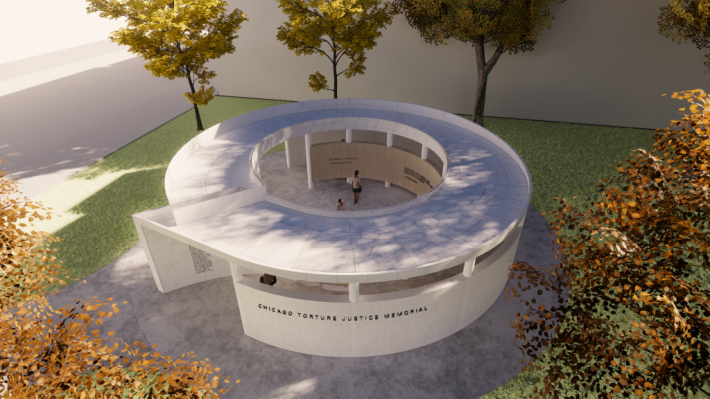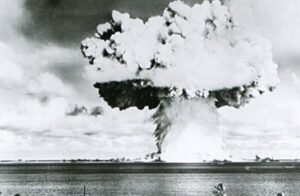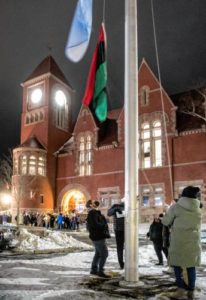Under former Police Cmdr. Jon Burge, officers tortured at least 100 Black men into confessions over two decades.
DOWNTOWN — Six years after the city passed a reparations package, police torture survivors gathered at Daley Plaza Thursday to demand Mayor Lori Lightfoot honor parts of the law still unfulfilled, including the funding of a permanent torture survivor memorial.
Holding banners bearing the names of survivors and the dates they were tortured, representatives from the Chicago Torture Justice Center and Ald. Howard Brookins (21st) implored the city to use part of its $1.7 billion police budget to build the memorial, which would be erected in Brookins’ ward.
Under former Police Cmdr. Jon Burge and his “Midnight Crew,” officers tortured at least 100 Black men into confessions from the 1970s-1990s, with abuses ranging from suffocation to mock executions.
Burge was fired from the Chicago Police Department in 1993. While he spent more than four years in prison on obstruction of justice and perjury charges, he was never charged for the torture itself as the statute of limitations had passed. He continued to draw a pension of more than $4,000 a month until he died in 2018.
It is estimated that the city paid more than $57 million to victims of Burge and his detectives. A Chicago Police Torture Archive created by journalism nonprofit Invisible Institute documents Burge’s legacy of torture.
Invoking George Floyd and Rodney King, Brookins said the city has paid out more than $100 million to settle police misconduct lawsuits since he became aldermen in 2003. The torture survivor memorial should be built “as soon as possible” to provide closure to those affected.
Burge’s reign of torture “didn’t make our city safe and lost the confidence of our citizens,” Brookins said.
“Not only did it cost us blood and treasure, but it also cost us the respect of the community to work with police to determine the real perpetrators of crime,” said Brookins, who co-authored the reparations ordinance with former Ald. Proco “Joe” Moreno (1st).

The reparations package passed by City Council in 2015 included a $5.5 million fund and assistance like free college tuition and counseling services for survivors in Englewood; a requirement for Chicago Public Schools to teach the torture cases in middle and high school history classes; the development of the Chicago Torture Justice Center; and the agreement to create a memorial, which has not yet been funded by the city.
Gregory Banks, a torture survivor and Chicago Torture Justice Center fellow, said the memorial reflects the history “of how the Chicago Police Department terrorized the community.”
“This is a country that has to fight legally and in the streets to have a disgraced statue of Christopher Columbus removed,” Banks said.
Lightfoot is committed to seeing the memorial project through and is currently exploring ways to fund it, her spokesman said.
The Chicago Torture Justice Memorials was recently awarded a $500,00 grant from a national arts and justice funder, according to co-founder Sarah Ross. A more formal announcement is coming soon.




